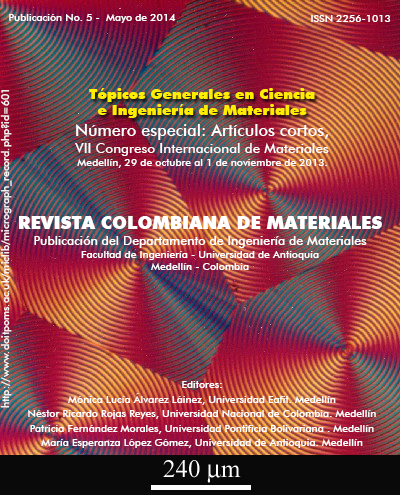.
DOI:
https://doi.org/10.17533/udea.rcm.19443Keywords:
Curriculum, Materials, Core problems, CompetenciesAbstract
Downloads
References
Departamento Nacional de Planeación, (Visión Colombia II Centenario: 2019), Bogotá, 2005, https://www.dnp.gov.co/LinkClick.aspx?fileticket=G5qKFALu6Zw%3d&tabid=775.
ACOFI, (Retos en la formación del ingeniero para el año 2020), Bogotá, 2007, 294 p.
Departamento Nacional de Planeación, (Plan nacional de desarrollo 2010-2014), Bogotá, 2010, https://www.dnp.gov.co/PND/PND20102014.aspx.
Cámara de comercio de Barranquilla, (Plan Regional de competitividad del Departamento del Atlántico), Barranquilla, 2008.
Ministerio de Educación Nacional, (Decreto Número 1295 de 2010), Bogotá, 2010, p 16.
Universidad Autónoma del Caribe, Centro de Desarrollo Pedagógico (Protocolo para la presentación de los proyectos curriculares de renovación de programas de posgrados en la UAC), Barranquilla, 2011.
Universidad Autónoma del Caribe, Centro de Desarrollo Pedagógico (Guía para la determinación de problemas profesionales del contexto), Barranquilla, 2013.
Ministerio de comercio, industria y turismo. MinCIT. Informe de industria, enero-diciembre 2012, http://www.embajadacolombia.ca/documents/InformeIndustria122012.pdf
ProBarranquilla. Sector Manufacturas Barranquilla y el Departamento del Atlántico 2013. http://www.probarranquilla.org/index.php?lang=es&opc=5&sel=1
ASME. 2028, Vision for Mechanical Enginnering. New York, 2008.








